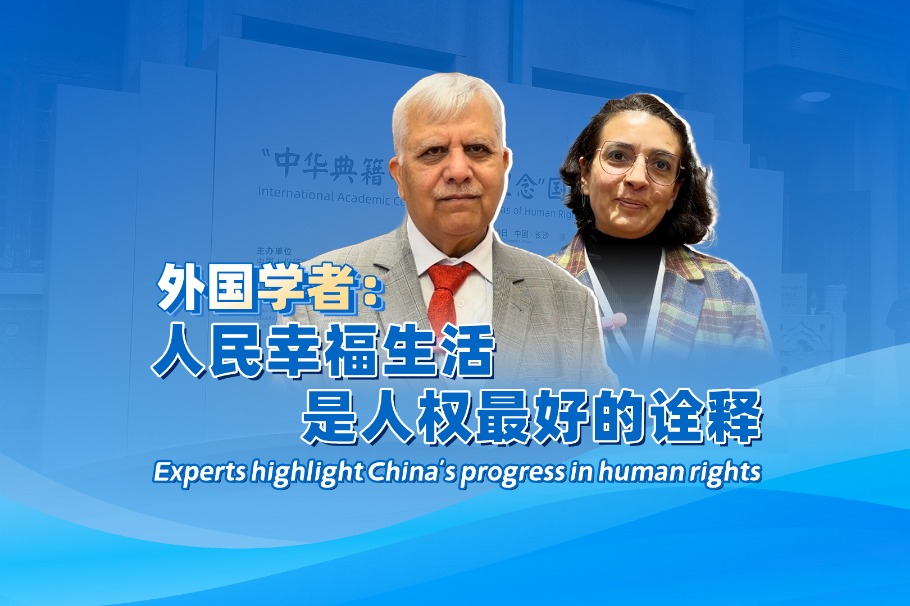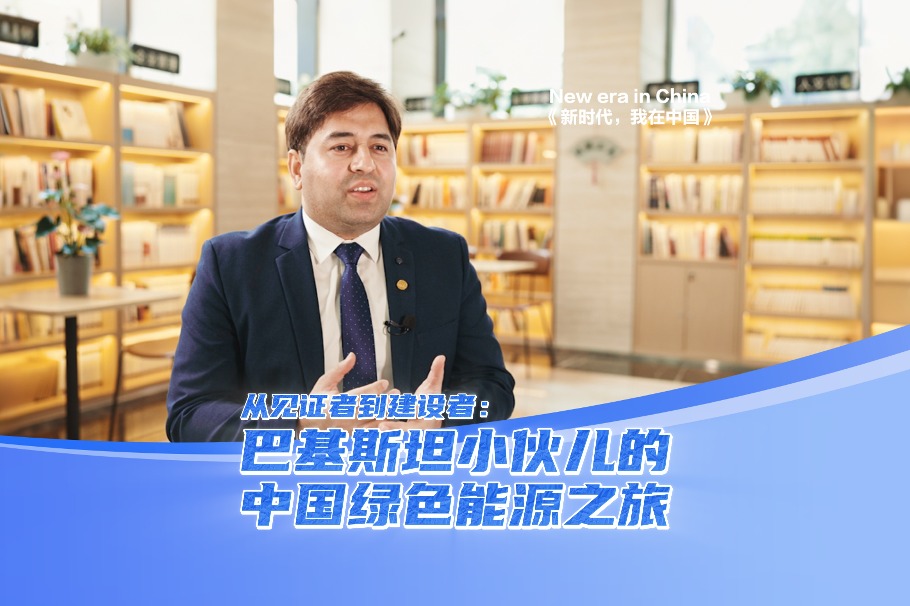Flying Tigers' legacy shows deep bonds
Wartime friendship, mutual respect should be inherited, descendants say
By RENA LI in Los Angeles | China Daily | Updated: 2024-05-14 07:04

To commemorate the 45th anniversary of the establishment of diplomatic ties between China and the United States, Catharine Kerr joined other descendants of World War II heroes to share their stories.
"The cooperation between Chinese and Americans during the difficult wartime is strongly remembered in my family," said the granddaughter of Flying Tigers lieutenant Donald Kerr at a recent commemoration hosted by the American Flying Tigers Communication Association. "I hope that the friendships (that started) 80 years ago continue forever."
On Feb 11, 1944, Flying Tigers pilot Donald Kerr was part of a mission to bomb Kai Tak airport in Hong Kong.
He downed a Japanese aircraft before finding himself being pursued by three Japanese fighter planes. His aircraft was hit and caught fire. He then parachuted and landed in Sha Tin Au in the New Territories of Hong Kong.
Facing the imminent danger of the Japanese military's extensive manhunt, Kerr was saved through the efforts of the Dongjiang (East River) Column and the Hong Kong-Kowloon Independence Brigade.
After enduring 48 days of uncertainty, Kerr was safely escorted back to the Guilin base in the Guangxi Zhuang autonomous region. His rescuers gave him a map and ensured that he would get home safe and sound.
This experience left Kerr with a profound appreciation for the friendliness and courage of the Chinese people. "Never be enemies of the Chinese," he once said to his eldest son Andy.
In 2008, when Kerr's wife neared the end of her life, she entrusted Kerr's relics to their two sons and told them: "In the future, you must help the Chinese just like the Chinese aided your father."
Kerr's rescue was later compiled into an escape manual by the Flying Tigers and was highly praised by general Claire Lee Chennault, a pivotal figure in the group's history.
Extensive coverage
The America Magazine extensively covered Kerr's rescue in 1944, publishing the story worldwide. Consequently, the US military headquarters in China established intelligence collaboration with the Dongjiang Column, solidifying its role as a vital component in the global anti-fascist struggle.
Kerr was not the only pilot rescued from Hong Kong during the Japanese occupation. In April 1984, US president Ronald Reagan said at Fudan University in Shanghai: "According to incomplete statistics, in 1944, in addition to Kerr, the Dongjiang Column also rescued seven Flying Tigers pilots."
Catharine's father David Kerr and uncle Andy Kerr embarked on a profound journey to China since 2007 to fulfill their parents' wishes and express gratitude to those involved in Kerr's rescue.
They have gone on more than 10 trips to Shenzhen, Guangzhou, Dongguan and Hong Kong, tracing Kerr's escape route and seeking out the guerrilla fighters who took part in the rescue. Along the way, they have connected with veteran soldiers and their descendants. Today, Kerr's family are friends with the third generation of Dongjiang Column veterans.
"I (once) went with my father to China in 2008 and met many of the villagers and soldiers who had rescued my grandfather," Catharine said. "We were able to thank the people for the many risks they took to help my grandfather."
Nell Calloway, granddaughter of Chennault, emphasized the importance of coexistence between China and the US. She stressed the need to go back into history and "remember what brought us to the point of reunification".
Importance of history
"We cannot celebrate one anniversary without understanding the importance of history," Calloway said in a video to the event. "This history eventually leads us to becoming (great) powers. It is now our responsibility to maintain that."
Calloway said her grandfather's Flying Tigers story illustrates two great people working toward a common goal to bring the world peace. "Let us all continue to work hard toward friendship, understanding the most important peaceful world."
Mel McMullen, one of the few surviving members of the Flying Tigers, recounted the bravery of the Chinese people who risked severe punishment by the Japanese invaders to save the lives of hundreds of downed US pilots in the 1940s.
While governments and politics may have shifted, he said the fundamental desire for peace remains unchanged among people.
"We were friends, comrades and partners in war. Why can't we be partners in peace?" the 99-year-old said at the event.
The Flying Tigers witnessed a remarkable chapter in history when China and the US stood shoulder to shoulder against Japanese aggression.
"When American pilots found themselves in dire straits, they were rescued by Chinese troops who risked their own lives to ensure local stability," Wang Qi, a Chinese consul in Los Angeles, said.
"The story of the Flying Tigers is the glorious history of mutual respect, and joint defense for justice and peace by the Chinese and American people.
"We will always remember those who have made huge sacrifices and contributions. The deep friendship between China and the US established in the war should be inherited."
US Congresswoman Judy Chu said cooperation between the two countries has been crucial throughout history, and the story of the Flying Tigers exemplifies this partnership.
"Let us celebrate this deep friendship and ensure we keep the memory of the Flying Tigers alive."
























